Exhaust Manifold Pipe Replacement 6.0 L, 6.6 L, and 8.1 L Engines
Removal Procedure
Caution: In order to avoid being burned, do not service the exhaust system while it is still hot. Service the system when it is cool.
Caution: Always wear protective goggles and gloves when removing exhaust parts as falling rust and sharp edges from worn exhaust components could result in serious personal injury.
- Raise and suitably support the vehicle. Refer to Lifting and Jacking the Vehicle in General Information.
- Remove the oil pan skid plate bolts and plate, if necessary.
- Support the transmission with a transmission jack.
- Remove the transmission mount to transmission support nuts.
- Raise the transmission off of the transmission support.
- Remove the transmission support crossmember bolts.
- Remove the transmission support crossmember.
- If equipped with the 6.0L, or 8.1L engines, remove the exhaust muffler. Refer to Muffler Replacement .
- If equipped with a 6.0L or 8.1L engine, perform the following:
- if equipped with a 6.0L or 8.1L engine, remove the exhaust manifold pipe nuts.
- If equipped with the 6.6L engine, remove the exhaust muffler nuts.
- If equipped with a 6.6L engine, loosen the exhaust pipe clamp.
- Slide the exhaust pipe clamp up onto the exhaust pipe adapter.
- If equipped with a 6.0L or 8.1L engine, remove the exhaust manifold pipe.
- Slide the exhaust manifold pipe hanger out of the exhaust pipe hanger bracket.
- Discard the exhaust manifold pipe seal.
- If equipped with a 6.0L engine, with regular production option (RPO) Y91, remove the exhaust manifold pipe.
- Slide the exhaust manifold pipe hanger out of the exhaust pipe hanger bracket.
- Discard the exhaust manifold pipe seal.
- If equipped with a 6.6L engine, remove the exhaust manifold pipe.
- Slide the exhaust manifold pipe hanger out of the exhaust pipe hanger bracket.
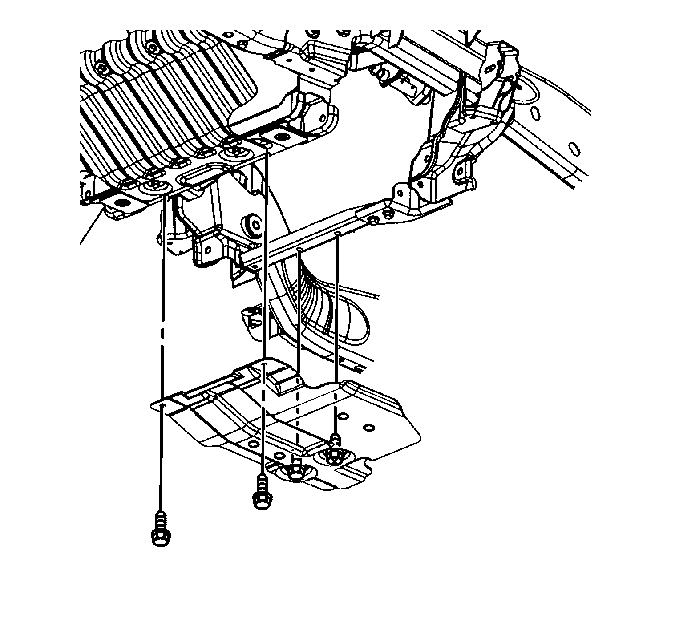
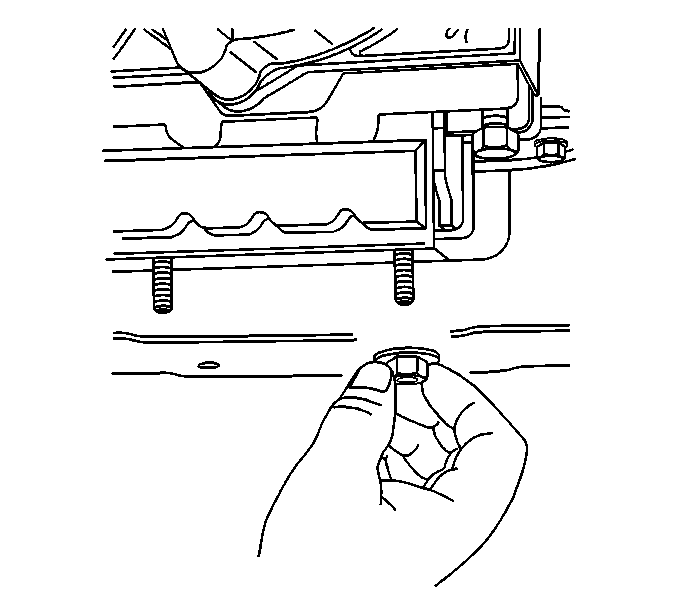
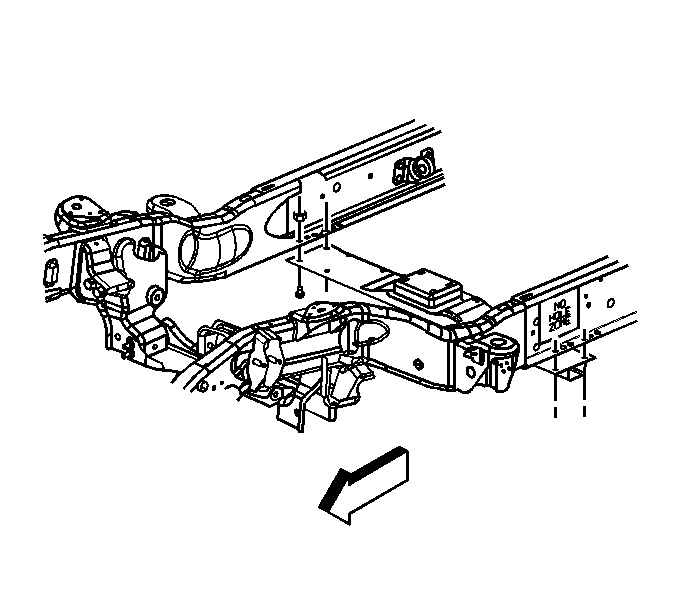
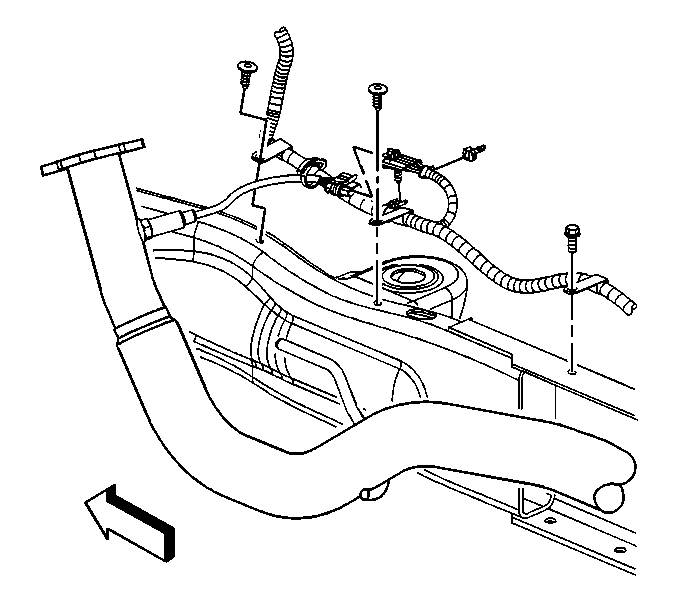
| 9.1. | Remove the clip around the engine harness and the oxygen sensor pigtail. |
| 9.2. | Disconnect the connector position assurance (CPA) retainer. |
| 9.3. | Disconnect the oxygen sensor electrical connector. |
| 9.4. | If replacing the exhaust manifold pipe, remove the oxygen sensor. |
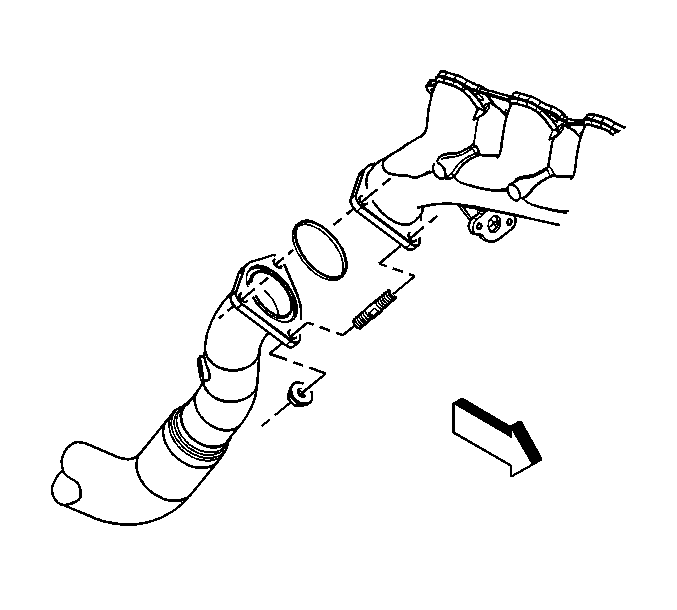
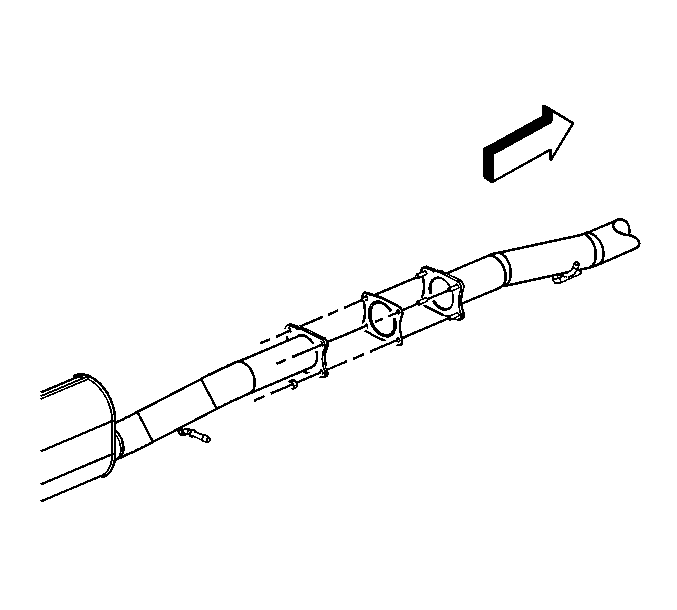
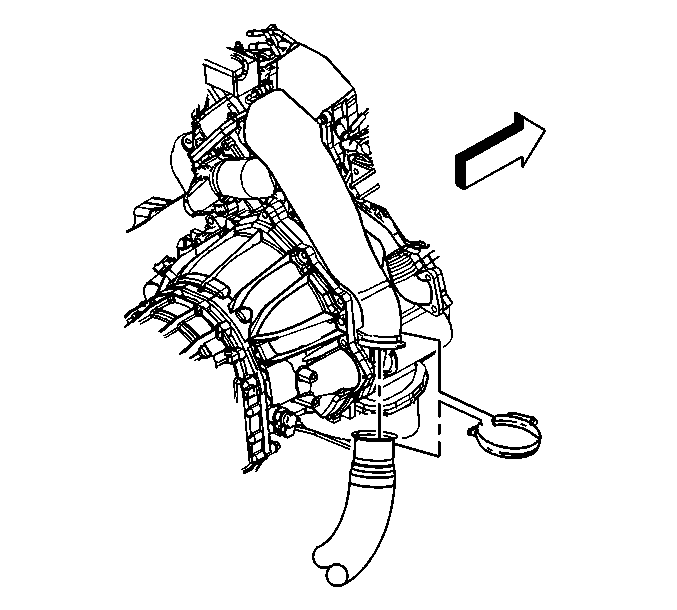
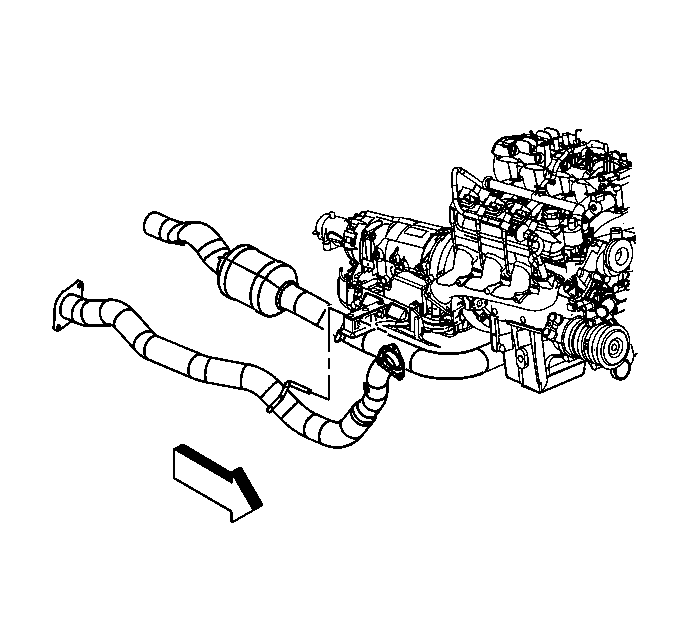
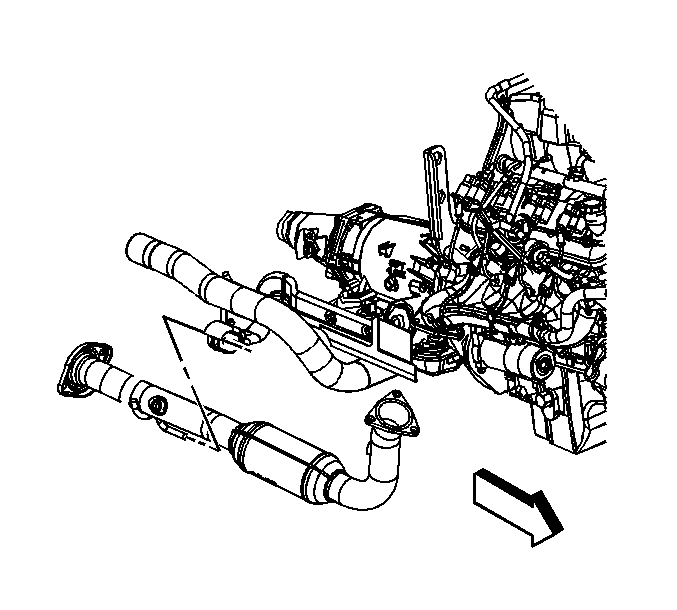
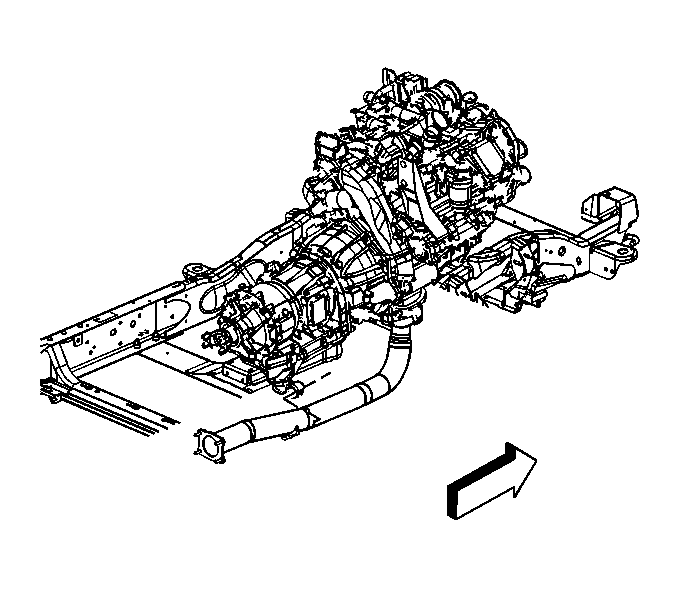
Installation Procedure
Notice: When inspecting or replacing exhaust system components, make sure there is adequate clearance from all points on the underbody to prevent overheating of the floor pan and possible damage to the passenger compartment insulation and trim materials.
- If equipped with a 6.6L engine, install the exhaust manifold pipe.
- Apply water based lubricant to the exhaust pipe hanger bracket, in order to aid in installation.
- Slide the exhaust manifold pipe hanger into the exhaust pipe hanger bracket.
- If equipped with a 6.0L engine, with RPO Y91, install a new exhaust manifold pipe seal to the exhaust manifold pipe.
- Install the exhaust manifold pipe.
- Apply lubricant to the exhaust pipe hanger bracket, in order to aid in installation.
- Slide the exhaust manifold pipe hanger into the exhaust pipe hanger bracket.
- If equipped with a 6.0L or 8.1 L engine, install a new exhaust manifold pipe seal to the exhaust manifold pipe.
- Install the exhaust manifold pipe.
- Apply lubricant to the exhaust pipe hanger bracket, in order to aid in installation.
- Slide the exhaust manifold pipe hanger into the exhaust pipe hanger bracket.
- If equipped with the 6.6L engine, install the exhaust muffler nuts until snug.
- If equipped with a 6.6L engine, slide the exhaust pipe clamp down and around the pipe connection.
- Tighten the exhaust pipe clamp and muffler nuts.
- If equipped with a 6.0L or 8.1L engine, install the exhaust manifold pipe nuts.
- If equipped with a 6.0L or 8.1L engine, and the exhaust manifold pipe was replaced perform the following:
- If equipped with a 6.0L or 8.1L engine, and the exhaust manifold pipe was not replaced perform the following:
- If equipped with the 6.0L, or 8.1L engines, install the exhaust muffler. Refer to Muffler Replacement .
- Install the transmission support crossmember.
- Install the transmission support crossmember bolts.
- Lower the transmission onto the transmission support.
- Install the transmission mount to transmission support nuts.
- Remove the transmission jack.
- Install the oil pan skid plate and bolts, if necessary.
- Lower the vehicle.





Important: Ensure that the manifold pipe is square to the exhaust pipe adapter.
Notice: Use the correct fastener in the correct location. Replacement fasteners must be the correct part number for that application. Fasteners requiring replacement or fasteners requiring the use of thread locking compound or sealant are identified in the service procedure. Do not use paints, lubricants, or corrosion inhibitors on fasteners or fastener joint surfaces unless specified. These coatings affect fastener torque and joint clamping force and may damage the fastener. Use the correct tightening sequence and specifications when installing fasteners in order to avoid damage to parts and systems.
Tighten
| • | Tighten the exhaust pipe clamp to 40 N·m (30 lb ft). |
| • | Tighten the exhaust muffler nuts to 40 N·m (30 lb ft). |

Tighten
Tighten the exhaust manifold pipe nuts to 50 N·m (39 lb ft).

| 16.1. | Apply anti-seize compound GM P/N 12377953 or equivalent to the threads of the old oxygen sensor. |
| 16.2. | Install the old oxygen sensor. |
Tighten
Tighten the oxygen sensor to 42 N·m (31 lb ft).
| 17.1. | Connect the oxygen sensor electrical connector. |
| 17.2. | Connect the CPA retainer. |
| 17.3. | Install the clip around the engine harness and the oxygen sensor pigtail. |

Tighten
Tighten the transmission crossmember bolts to 70 N·m (52 lb ft).

Tighten
Tighten the transmission mount nuts to 40 N·m (30 lb ft).

Tighten
Tighten the oil pan skid plate bolts to 20 N·m (15 lb ft).
